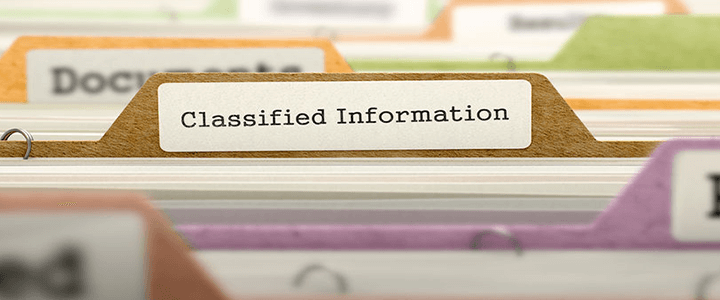Executive Order 12968, “Access to Classified Information,” issued in late 1995, mandated for the first time common security clearance Adjudicative Guidelines (AG) for the entire Government. The AG were implemented in their basic form in 1997. A revision to the AG was approved by the President in December 2005 with a number of minor alterations, but their basic structure and approach remained unchanged.
In October 2008 the Office of the Director of National Intelligence (ODNI) issued Intelligence Community Policy Guidance (ICPG) 704.2 which contained a reprint of the 2005 AG, with two differences:
- The AG was expressly for determining eligibility for access to Sensitive Compartment Information (SCI), and
- Guideline C: Foreign Preference bore little resemblance to the version in the 2005 AG.
Shortly after the issuance of ICPG 704.2, ODNI initiated a formal examination of the structure and content of the 2005 AG and a review of the version of Guideline C contained in ICPG 704.2. For eight years the AG was studied and recommended changes were reviewed in coordination with other agencies.
On December 10, 2016 the Director of National Intelligence signed Security Executive Agent Directive (SEAD) 4, “National Security Adjudicative Guidelines.” These new AG supersede the 2005 AG and the AG contained in ICPG 704.2. SEAD 4 “establishes the single, common adjudicative criteria for all covered individuals who require initial or continued eligibility for access to classified information or eligibility to hold a sensitive position.” The effective date of SEAD 4 is June 8, 2017.
Changes in the Foreign Preference Adjudicative Criteria
The single most significant change in the new AG is at Guideline C: Foreign Preference. The new Guideline C is a compromise that favors the version in ICPG 704.2 over the version in the 2005 AG. This change to Guideline C is discussed in a companion article titled, “New Dual Citizenship Guideline for Security Clearance Eligibility.” The other changes to the AG include:
POLYGRAPH
Polygraph was never mentioned in any of the previous versions of the AG. The Introduction (paragraph 1.c) to the new AG contains a very significant sentence about polygraph results that doesn’t appear in any other national policy document:*
No adverse action concerning these guidelines may be taken solely on the basis of polygraph examination technical calls in the absence of adjudicatively significant information.
Existing national polygraph policy states that when polygraph is required, access to classified information can be denied if the applicant refuses to take a polygraph exam, is non-cooperative, or uses polygraph countermeasures. National polygraph policy does not prohibit denying clearance for failing to successfully complete a polygraph exam (e.g. inconclusive or significant response results). Additionally, there is no national policy that prevents an agency from rejecting an applicant based on employment suitability or fitness criteria, if the applicant does not successfully complete a polygraph exam.
EXCEPTIONS TO STANDARDS
When an “exception” is approved, it permits an adjudicative decision to grant or continue access eligibility despite a failure to meet adjudicative or investigative standards. The policy on exceptions is detailed in Appendix C to SEAD 4. Exceptions consist of “waivers,” “conditions,” and “deviations.” This is the first time the policy on exceptions has been included in the AG; however, prior CIA, ODNI, and OMB documents have contained policy statements on the use of exceptions. Some agencies grant or continue clearances with conditions (e.g. continue mental health treatment, successfully complete substance abuse counseling, repay delinquent debts, etc.). Waivers are used for SCI clearances when an applicant’s immediate family members are residents of countries that present a heightened risk to U.S. national security. Waivers are also used when Bond Amendment restrictions might otherwise require clearance denial. At least one agency, the Defense Office of Hearings and Appeals (DOHA), previously did not have the authority to use exceptions when granting or continuing a clearance. A clearance granted with an exception by one agency does not have to be reciprocally accepted by another agency.
BOND AMENDMENT
The Bond Amendment and specific guidance on its application are included at Appendix B to SEAD 4. The applicability of the Bond Amendment has been extended to eligibility to hold a sensitive national security position that does not involve access to classified information.
THINGS THAT SHOULD HAVE CHANGED, BUT DIDN’T
Guideline H: Drug Involvement
No new mitigating condition was created for current medical use of marijuana. Adjudicators can apply “unusual circumstances” to mitigate recent past medical marijuana use, but the Bond Amendment precludes granting or continuing a clearance for someone currently using marijuana to treat a medical condition. This is the only Bond Amendment restriction for which a waiver cannot be granted.
Guideline J: Criminal Conduct
The “individual is currently on parole or probation” remains a potentially disqualifying condition. It should have been removed and replace with “non-compliance with terms of parole or probation.” Parole and probation are positive not negative factors. They represent a decision by the judicial system that confinement isn’t necessary to keep a person from reoffending. Previously there was no mitigating condition for being currently on parole or probation, but “compliance with the terms of parole or probation” was added to the new AG.
Guideline D: Sexual Behavior
This entire guideline could have been eliminated. For the most part its content are duplicated in other guidelines. Minor changes to those other guidelines could have completely supplanted the need for Guideline D.
* DoD polygraph policy contains a similar provision prohibiting adverse action based solely on polygraph results.
Copyright © 2017 Federal Clearance Assistance Service. All rights reserved.



